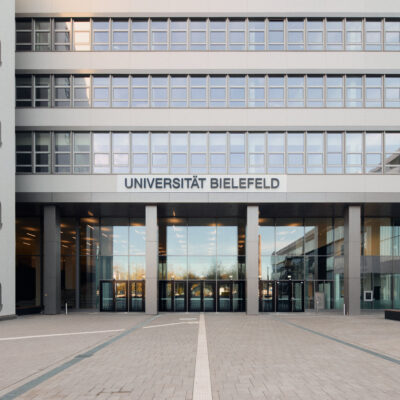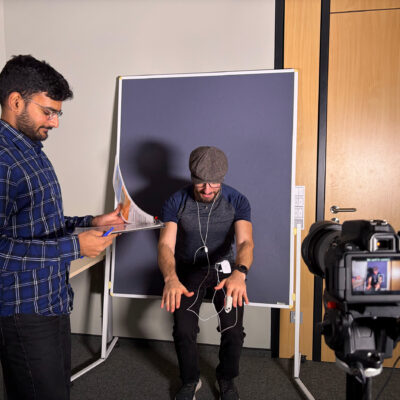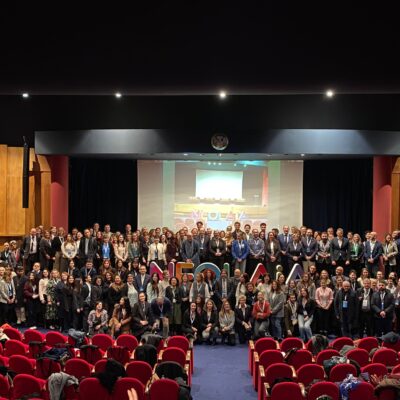Global challenges need global perspectives. In order to increase the diversity of perspectives in the ZiF research groups and to make African researchers more visible, the Center for Interdisciplinary Research (ZiF) at Bielefeld University is offering two scholarships per year for researchers from Africa: the Norbert Elias Fellowships, supported by the Volkswagen Foundation. Since October, two fellows have been contributing to the research group ‘Internalizing Borders: The Social and Normative Consequences of the European Border Regime’ at the ZiF: Dr Deborah Bunmi Ojo is a lecturer in the Department of Urban and Regional Planning at the Faculty of Environmental Design and Management of Obafemi Awolowo University in Ile Ife, Nigeria. Her research and teaching focuses on Border and Urban Studies and Environmental Management. Dr. Almamy Sylla is a social anthropologist and senior lecturer at the University of Bamako in Mali. His ongoing research is focused on forced migration, return migration, and migration infrastructures in Mali, as well as gender and social innovations. We asked Deborah Bunmi Ojo and Almamy Sylla about their research and about working in an interdisciplinary group at ZiF.
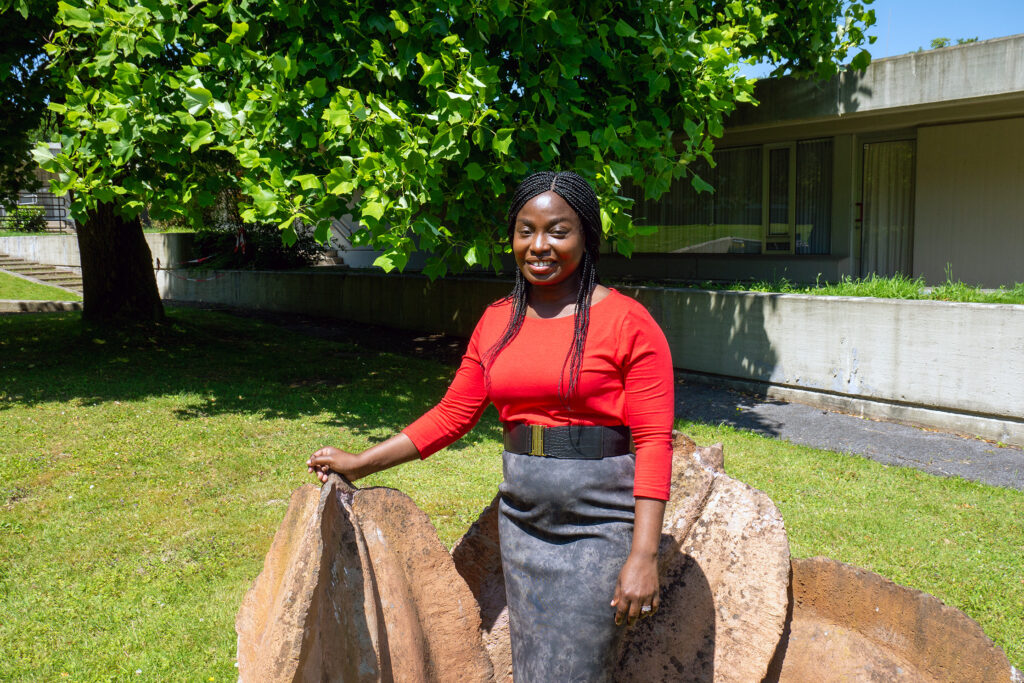
©
What motivated you to become a fellow of the ZiF research group?
Deborah Bunmi Ojo: As an urban planner, my research has primarily focused on the border regions of Africa, particularly in Nigeria where I live. I have been examining how border policies influence the social structures of communities and the lives of residents in these areas. My previous work addresses the residents’ quality of life in these border communities. The unique border dynamics in this region are a legacy of colonial-era boundaries, which continue to significantly impact the local populations and the nations involved. Joining the ZiF research group, which explores bordering practices in Europe and their social and normative consequence, presented an invaluable opportunity for me. It allowed me to gain insights into the European context of border issues and understand how these practices shape communities there. For example, during our group’s visit to the Polish-Belarusian border precisely at Podlasie, Poland, I witness the extensive fortifications designed to prevent non-EU nationals from entering. I was confronted with the stark realities of the European Union’s border policies during this trip. This sparked discussions on the human right to leave a country versus the right to stay and be accepted elsewhere. This cross-regional perspective is crucial for my research, as it enables me to compare and contrast the border dynamics of Africa and Europe, enriching my understanding and potentially informing more effective border policies and community planning in both regions.
Almamy Sylla: I am working on migration and borders in Mali. Mali is heavily influenced by the European border policies. The European Union is paying for projects to stop migrants leaving the country to go for Europe. My research is focused on how people who were sent back to Mali after leaving the country are dealing with the issue of reintegration. So, I am interested in how the European border policy affects the society of Mali. This is very close to what the research group at ZiF is working on for Europe. In Europe people have developed powerful informal structures in the inner-European border regions. These structures cross the borders and can be part of two or three countries. They share structures and spaces. People can go to both sides of the border to deal with their daily lives e.g., for shopping, for work or go to school. That is very impressive. And I am also very interested in establishing an interdisciplinary and international cooperation among border researchers.
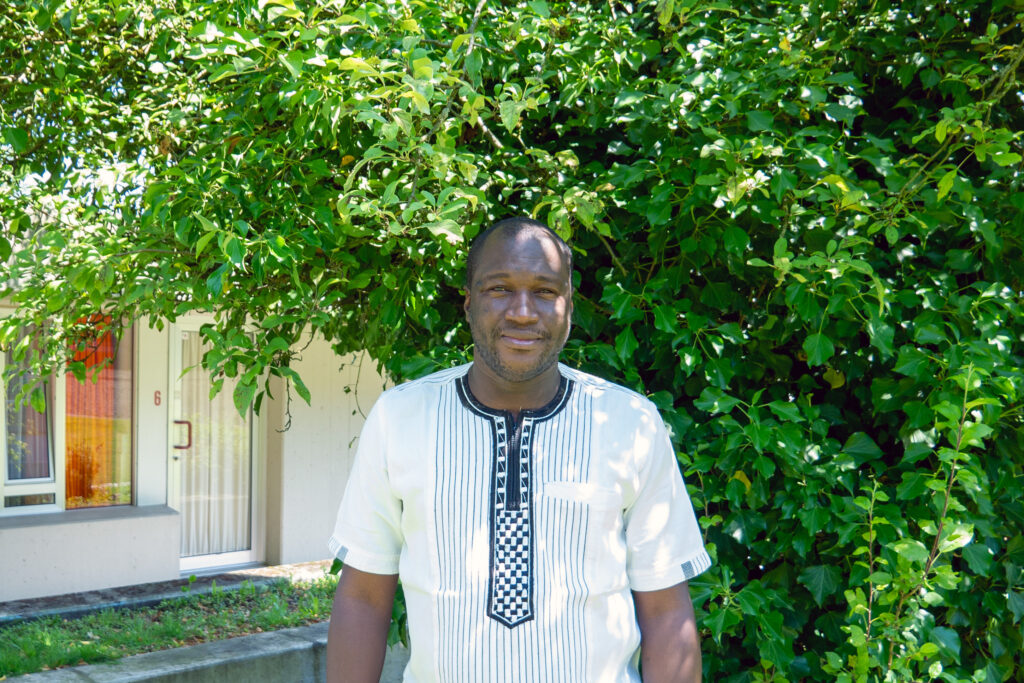
©
The research group brought together researchers from different fields, sociology, law, anthropology, psychology, history, philosophy and others. How was the experience of working with such an interdisciplinary group?
Deborah Bunmi Ojo: Working with the research group was a unique and enriching experience for me. My work closely aligns with sociology, but this was my first time collaborating with professionals from law, history, and political science. Initially, this interdisciplinary approach was challenging, but it quickly became rewarding, offering a broader and more comprehensive understanding of the topics we explored. Engaging with colleagues from different disciplines enhanced my own perspective, making it more robust and nuanced. Most of the fellows in our group focused on European border issues, so I had to familiarize myself with these topics, contrasting them with my previous studies on African borders. This experience significantly broadened my horizons and deepened my understanding. I am now committed to continuing this interdisciplinary approach, as it has proven to be incredibly insightful. One of my current research projects examines the impact of EU border policies on family reunification and the quality of life of African academic migrants in Germany. This project stems from my personal experience and the challenges I encountered when my children and husband were denied visas to join me in Germany. This unexpected difficulty profoundly affected me, leading me to turn this experience into a research project to better understand and address the implications of such policies on academic migrants from Africa. Additionally, I am fascinated by comparing bordering practices in Europe and Africa, particularly the Schengen system and ECOWAS (Economic Community of West African States). Although the two policies are completely different, I aim to understand and provide valuable insights into the similarities and differences between the systems, contributing to a deeper understanding of regional integration and border management in different contexts.
Almamy Sylla: Yes, coming to Europe is always challenging for researchers from Africa!
Concerning my research, I think, interdisciplinarity is key in the migration and border studies. That are complex topics, and to analyze them one needs to deal with many different perspectives. We need to look at the social, political economical, anthropological and religious dimensions that make migration possible or impossible. And we also need to combine methods and perspectives. I think the research group is a chance to look beyond our own disciplines and perspectives. Working with the group has also broadened my perspective. I am not used to work with historical data, but to look at the history makes it easier to see why Europe is dealing with its borders the way it does. And it also helps to understand the African border regimes and maybe also to see how African countries could manage borders better and which mistakes they should avoid. In theory with ECOWAS we can also move freely, but in reality, we cannot travel without passport. In Europe that is different. And I am interested in thinking about how to change that.
How did you like Bielefeld?
Almamy Sylla: Bielefeld is at the same time modern and industrialized and green and quiet. You have the forest and a lot of green in the city and at the same time you have a modern infrastructure bike lanes and tram. That is impressive.
Deborah Bunmi Ojo: I’ve found Bielefeld to be particularly remarkable because it brings many theoretical concepts to life. At home, we face numerous challenges that hinder the realization of urban plans, but here, I can see these plans effectively implemented. The city’s abundant greenery, with so many planted trees, is a clear example of successful urban planning in action. I truly appreciate the meticulous planning that goes into German cities, and Bielefeld exemplifies this with its well-organized and thoughtfully designed urban spaces.
